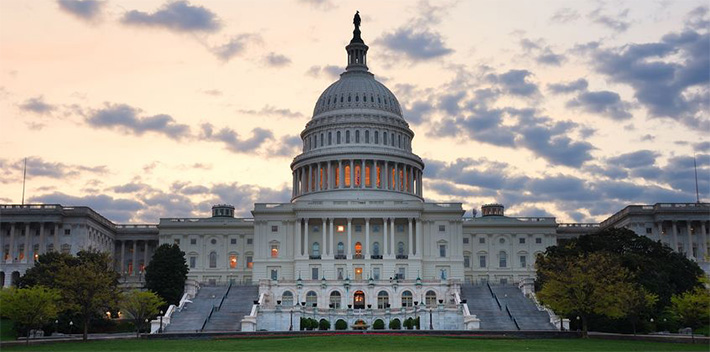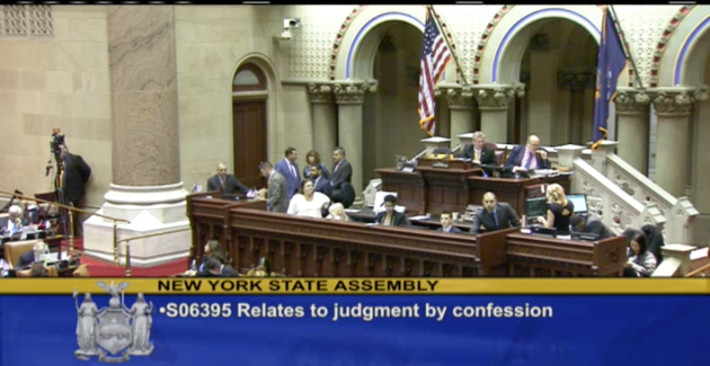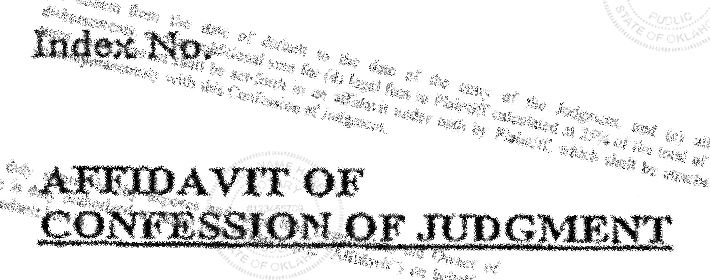Story Series: COJs
Up Next On The New York Legislative Agenda: Funder, Lender, and Broker Licensing
September 10, 2019 New York State Senator James Sanders Jr. has introduced S6688, a commercial financing licensing bill that would require persons or entities engaging in the business of making or soliciting commercial financing products in New York state to obtain a license from the New York Department of Financial Services. The bill covers small business lenders, merchant cash advance companies, factors, and leasing companies for transactions under $500,000.
New York State Senator James Sanders Jr. has introduced S6688, a commercial financing licensing bill that would require persons or entities engaging in the business of making or soliciting commercial financing products in New York state to obtain a license from the New York Department of Financial Services. The bill covers small business lenders, merchant cash advance companies, factors, and leasing companies for transactions under $500,000.
The bill likely won’t see any activity until the New York legislative session resumes in 2020, at which point it could be amended or killed.
As currently drafted, applicants for a license would be subject to a criminal background search and be required to submit their fingerprints for a review by agencies such as the FBI. In addition to paying an application fee, applicants would be required to maintain liquid assets of $50,000.
Sanders, the bill’s sponsor, is the Chairman of the banking committee. You can read the full text of the bill here.
New York’s COJ Restrictions Have Been Signed Into Law
August 30, 2019 Governor Cuomo has signed S6395, the law that outlaws entering a Confession of Judgment in New York against a non-New York debtor.
Governor Cuomo has signed S6395, the law that outlaws entering a Confession of Judgment in New York against a non-New York debtor.
Rich Azzopardi, a senior advisor to the governor, said on social media that the law has “closed a loophole that allowed unscrupulous creditors to use NY courts to penalize out-of-state consumers with no ties to the state.” He congratulated Senators Brad Hoylman and Assembly Member Jeffrey Dinowitz for their work on the bill.
Senator Hoylman tweeted in response that “the entire business model of lenders who exploited New York’s court system and laws to prey on out-of-state small businesses through confessions of judgment was immoral.”
The Confession of Judgment ban is very specific, it prohibits the entering of a COJ in New York against a non-New York party. It does not prevent parties from filing lawsuits in New York. It does not prohibit COJs from being filed in other states. This law is significant because approximately 99% of COJs being utilized in the small business finance industry were being filed in New York regardless of where the debtor resided. That is because the New York Court system is the fastest and most efficient when it comes to entering COJs and securing a judgment.
The bill was drafted in response to a controversial story series published by Bloomberg reporters Zeke Faux and Zachary Mider that alleged abuses were taking place in the New York courts via COJs.
Is The COJ Law In Effect Yet?
July 18, 2019
The COJ bill passed, but where’s the governor’s signature?
When the legislature passes a bill in New York State, there’s a documented procedure on the Senate’s website for how it becomes law. If the legislature is still in session, the governor has only 10 days to sign it. If the passed bill is sent to the governor when the legislature is out of session, the governor has 30 days to sign it.
Caught in this process is S6395, the now-infamous COJ bill that prohibits the filing of a COJ in New York State against a non-New York resident. Its passage on the 18th of June and the closing of the legislative session theoretically put the bill on the 30-day track for the governor’s signature.
Indeed, the Farm Laborers Fair Labor Practices Act, which was debated on the Senate floor for several hours during the closing few days, has already been signed. So too have other bills, but not the COJ bill whose deadline for a signature was perceived to be around now.
But such deadlines are a bit more fluid in practice, legislative insiders say. The act of “delivering” the bill to the governor is a step all on its own and the legislature can actually withhold its formal delivery to avoid setting the clock in motion.
According to an official who’s familiar with the process, it could be months before the dotted line is signed. The official, who asked not to be named, explained that upon the bill being delivered to the governor’s office, only then will Governor Andrew Cuomo have 10 days to sign it. The legislature can also technically withhold delivery up until the very end of the year. This, the official explained, is done to ensure that legislation is thoroughly vetted, with extra checks to guarantee that bills are not unconstitutional and that they’ll lead to no previously unforeseen consequences.
Cuomo has already signed a bill allowing Congress to access Trump’s state tax returns, a bill raising the tobacco & e-cig buying age to 21, a bill guaranteeing women equal pay, and many more. All of which means the COJ bill could be next at any moment or it could be sentenced to signature purgatory until the last business day of 2019.
As the public waits with bated breath, small business finance companies are already planning next steps. Ian Nadjari, the Managing Director of Riverstrong Capital Funding, who said that his office was “not feeling good about [the bill],” is planning to drop their use of COJs entirely and update the terms of their future contracts. Nadjari aims to continue business regardless of the impending changes, he said.
Uplyft Capital CEO Michael Massa, explained that the bill is just a “change that we’ll have to adapt to. Certain players will be okay if they understand how COJs work.”
Several small business funding CEOs explained to deBanked that they welcome S6395 with the belief that it will level the playing field. One asserted that it will “eliminate some of the bad practices in the market,” such as the “offensive, aggressive measures” taken by firms who filed COJs too quickly or potentially in bad faith.
That perception, that such practices are not only possible, but have occurred, has garnered attention far beyond New York State. On June 26, for example, several members of Congress held a hearing to discuss COJs and their impact to further support for a federal bill that would ban them from use nationwide. That bill has a quite a bit a ways to go before it ever potentially even comes up for a floor vote.
Federal Lawmakers Not Convinced NY Confession of Judgment Ban is Enough
June 25, 2019
The recent New York State law that effectively ended the era of Confessions of Judgment in the small business finance industry is apparently not enough to satiate the outrage of some federal lawmakers. This morning, Rep. Nydia M. Velázquez (D-NY) and Rep. Roger Marshall (R-KS) introduced the “Small Business Lending Fairness Act” that would outlaw confessions of judgment in small business financing transactions nationwide.
Given the impact the New York law is expected to have, the effort may appear to be duplicative. But not quite. The New York law prohibits COJs from being filed in New York against out-of-state debtors. As New York had the friendliest commercial COJ process, financial companies were using New York courts to file COJs against debtors in all 50 states whether there was a nexus to New York or not. By requiring the debtor be in New York, as the new law requires, the utility of COJs in the New York courts for the other 49 states has been eliminated.
However…
That doesn’t mean that courts in other states don’t allow commercial COJs to be filed in their home states. Some do, such as California and Pennsylvania, for example, but the process isn’t as friendly or as easy as New York’s. (See an analysis of California’s and Pennsylvania’s COJ process here)

That is where the proposed federal law would have the most reach and why a federal bill is not merely an academic exercise at this stage.
The federal bill’s language is not new. It mirrors a bill introduced by Senators Sherrod Brown and Marco Rubio in December. No movement has been made on it since but they reportedly intend to move forward with it.
Velázquez intends to keep the momentum going.
“I was appalled to find out that New York State has become an epicenter for dishonest lenders seeking to swindle small businesses around the country,” Velázquez said. “That’s why I’m proud to introduce this legislation and will be leading a hearing this week to further expose these abusive practices.”
The hearing she refers to is titled, “Crushed by Confessions of Judgement: The Small Business Story” and it’s being held tomorrow at 11:30am on Capitol Hill. It will be livestreamed here.
An alleged victim of predatory lending is among the guest speakers. Mr. Jerry Bush, who was featured in Bloomberg’s controversial series on merchant cash advances, is on the witness list. Bush reportedly lost his business after a series of unfortunate business dealings. Nobody from the small business finance industry is currently appearing to offer any opposing testimony on the matter of COJs. If that changes, deBanked will provide an update.
The hearing will be livestreamed on the deBanked homepage.
It’s Official, The Confession of Judgment Era is Over
June 19, 2019 The New York State legislature passed a bill (S06395) late Thursday night that effectively eliminates Confessions of Judgment (COJ) in the small business finance industry.
The New York State legislature passed a bill (S06395) late Thursday night that effectively eliminates Confessions of Judgment (COJ) in the small business finance industry.
The Senate voted in favor 61-1.
The Assembly voted in favor 83-43.
The new law which goes into effect immediately after Governor Andrew Cuomo signs it, prohibits anyone from filing a COJ against a party that does not reside in New York State. That means if a small business or individual resides in any state that isn’t New York, you cannot file a COJ against them in New York. This matters greatly because 99% of all COJs industry-wide were being filed in New York due to the incredible ease and speed that New York Courts offer to turn those into valid judgments.
Debtors that reside in New York can still be subjected to New York COJs.
A particular sensational story series published by Bloomberg Businessweek created the impetus to change how such New York judgments by confession might impact out-of-state residents. The names of the Bloomberg reporters are written into the Bill’s official memo in the footnotes, memorializing for all time how this law came to be.
Within the small business finance industry, the percentage of funders that required a Confession of Judgment as a condition of their financing was relatively small. And their usage has been limited since COJs were only first introduced as a potential risk mitigation tool on merchant cash advances five years ago in 2014. However, Bloomberg News estimated that COJs have resulted in more than $1 billion in collective judgments over the years, mostly against non-New York businesses.
deBanked has received numerous inquiries regarding what this new law means for COJs already signed but not yet filed. That is a question for an attorney.

Another COJ Bill In New York Added To The Pile
May 14, 2019 Three members of the New York State Assembly want to make it illegal for a confession of judgment to be entered in the state against non-New York debtors. The debtor would also be required to be a resident of the county in which the COJ is filed. The authors behind Bill A07500, introduced on May 7th, plainly state that it is a reaction to stories that were published in Bloomberg Businessweek. (Questionable stories at that: See deBanked coverage)
Three members of the New York State Assembly want to make it illegal for a confession of judgment to be entered in the state against non-New York debtors. The debtor would also be required to be a resident of the county in which the COJ is filed. The authors behind Bill A07500, introduced on May 7th, plainly state that it is a reaction to stories that were published in Bloomberg Businessweek. (Questionable stories at that: See deBanked coverage)
“This measure is in response to recent press reports regarding creditors that execute confessions of judgment in New York State even though the associated agreement or debtor have no nexus to the State,” a memo attached to the bill states. Sign Here to Lose Everything, the Businessweek series authored by Zachary R. Mider and Zeke Faux, are cited in the footnotes.
The measure is merely the latest weapon unveiled in a wave of proposed legislation aimed at small business financing in New York this year. Here’s a recap of what’s pending now:
- A07500 – Seeks to ban COJs being entered against non-New York debtors.
- A03636 – Seeks to ban COJs from financial contracts.
- A03637 – Seeks to classify merchant cash advances as loans.
- A03646 – Seeks to establish a task force to investigate New York City marshals and their connection to “predatory lenders” and consider the feasibility of abolishing the city marshal program.
- A03638 – Seeks to apply consumer usury protections to small businesses.
Analyzing Confessions of Judgment
March 4, 2019 Platzer, Swergold, Levine, Goldberg, Katz & Jaslow, LLP (“Platzer”) has built one of the leading Merchant Cash Advance practices in New York City. With years of experience handling traditional lending transactions, Platzer has expanded its representation to Merchant Cash Advance Companies (“MCA”) in all aspects of their business cycles, including Participation Agreements, Assets Utilization, Transactional related matters and litigation.
Platzer, Swergold, Levine, Goldberg, Katz & Jaslow, LLP (“Platzer”) has built one of the leading Merchant Cash Advance practices in New York City. With years of experience handling traditional lending transactions, Platzer has expanded its representation to Merchant Cash Advance Companies (“MCA”) in all aspects of their business cycles, including Participation Agreements, Assets Utilization, Transactional related matters and litigation.
In the course of representing some of its MCA clients within the State of New York, Platzer has identified a potential issue in certain counties within New York State that are denying entry of Confessions of Judgment (“COJs”), notwithstanding language that has been contractually agreed upon and explicitly sets forth that the Confession of Judgment “may be entered in any and all counties with in the State of New York”, when the defendant is a non-resident.
The following is not a legal opinion but is our preliminary analysis:
It is Platzer’s position that New York Civil Practice Law and Rules (“CPLR”) 3218(a)(1) provides that when the defendant is a “non-resident” that judgment by confession may be entered in “the county in which entry is authorized.” Further, CPLR 3218(b) allows entry of judgment by confession as to a non-resident“ with the clerk of the county designated in the affidavit.” Platzer respectfully argued to the subject county that its jurisdiction is within the scope of authorization of “all counties” in the State of New York, and that the defendant “authorized” entry of judgment in the subject County, as contemplated by CPLR 3218(a)(1), and was also designated, as one of “all counties” in the State of New York, satisfying CPLR 3218(b), yet the Confession was denied entry.
As Platzer then noted, there is case authority for the proposition that non-resident defendants may subject themselves under CPLR § 3218 to the entry of judgment by confession in multiple counties. To Platzer’s knowledge, no Court has passed on the precise language of “all counties” or similar language. In the analogous situation where the confession of judgment executed by the non-resident defendant allowed entry in multiple but not “all” counties, Courts have routinely upheld entry of the judgment, while noting that there is no authority that would prohibit such entry under CPLR § 3218. Platzer has contended that this case law supports the notion that entry of confessions of judgment with “all counties” language is proper under CPLR § 3218.
As of March 4, 2019, Platzer is actively discussing these issues with the subject counties within the State of New York and hopes that its arguments will be persuasive based upon current New York law. Platzer is aware, however, of the state and national legislative efforts to curtail the entry of confessions of judgment and, specifically, the recent legislative proposal by Governor Andrew Cuomo to restrict entry of confessions of judgment to defendants doing business in New York and in amounts over $250,000.00. Platzer expresses no opinion as to these efforts.
Contacts:
Howard M. Jaslow
hjaslow@platzerlaw.com
Morgan S. Grossman
mgrossman@platzerlaw.com
Platzer, Swergold, Levine, Goldberg, Katz & Jaslow, LLP
475 Park Avenue South, 18th Floor
New York, New York 10016
Telephone: (212) 593-3000 ext. 248
Facsimile: (212) 593-0353
New York Legislators Introduce Small Business Usury Bill
February 20, 2019Two members of the New York State legislature have introduced a bill to apply consumer usury protections to small businesses. Bill A03638, introduced by New York Assemblymembers Yuh-Line Niou and Crystal Peoples-Stokes define a small business as “one which is resident in this state, independently owned and operated, not dominant in its field and employs one hundred or less persons.”
The bill is separate from the one introduced to outlaw Confessions of Judgment in financial contracts.





























